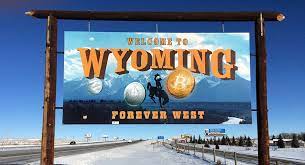
Breaking News
 Mirrored concrete for cheap solar energy
Mirrored concrete for cheap solar energy
 All Government Is Dictatorial Because All Government Is Totalitarian
All Government Is Dictatorial Because All Government Is Totalitarian
 Putin Says He's Ready for Peace
Putin Says He's Ready for Peace
 Medicaid Fraud in Minnesota at least $9 Billion Since 2018
Medicaid Fraud in Minnesota at least $9 Billion Since 2018
Top Tech News
 Perfect Aircrete, Kitchen Ingredients.
Perfect Aircrete, Kitchen Ingredients.
 Futuristic pixel-raising display lets you feel what's onscreen
Futuristic pixel-raising display lets you feel what's onscreen
 Cutting-Edge Facility Generates Pure Water and Hydrogen Fuel from Seawater for Mere Pennies
Cutting-Edge Facility Generates Pure Water and Hydrogen Fuel from Seawater for Mere Pennies
 This tiny dev board is packed with features for ambitious makers
This tiny dev board is packed with features for ambitious makers
 Scientists Discover Gel to Regrow Tooth Enamel
Scientists Discover Gel to Regrow Tooth Enamel
 Vitamin C and Dandelion Root Killing Cancer Cells -- as Former CDC Director Calls for COVID-19...
Vitamin C and Dandelion Root Killing Cancer Cells -- as Former CDC Director Calls for COVID-19...
 Galactic Brain: US firm plans space-based data centers, power grid to challenge China
Galactic Brain: US firm plans space-based data centers, power grid to challenge China
 A microbial cleanup for glyphosate just earned a patent. Here's why that matters
A microbial cleanup for glyphosate just earned a patent. Here's why that matters
 Japan Breaks Internet Speed Record with 5 Million Times Faster Data Transfer
Japan Breaks Internet Speed Record with 5 Million Times Faster Data Transfer
How Wyoming became the promised land for bitcoin investors

Wyoming's economy is powered by some of the oldest industries in human history, including mining, agriculture and tourism. But in recent years the state has emerged as an unlikely champion of far newer inventions: cryptocurrencies and the blockchain technology that powers them.
Now, the Cowboy State is arguably the most crypto-friendly jurisdiction in the United States, thanks to state leaders' shepherding a series of new laws.
These changes have encouraged several high-profile companies in the industry to move operations from traditional high-tech hubs like San Francisco to Wyoming's capital city of Cheyenne, including crypto exchange Kraken, blockchain platform Cardano and payment protocol firm Ripple Labs. But it has also put the state on a potential collision course with federal regulators who appear far more skeptical of the costs and benefits of blockchain technology than libertarian-leaning Wyomingites.
Wyoming State Sen. Chris Rothfuss, chairman of the chamber's blockchain committee, told MarketWatch that a desire to diversify the Wyoming economy has been a primary motivator of his state's embrace of the crypto industry.

 Advanced Propulsion Resources Part 1 of 2
Advanced Propulsion Resources Part 1 of 2

